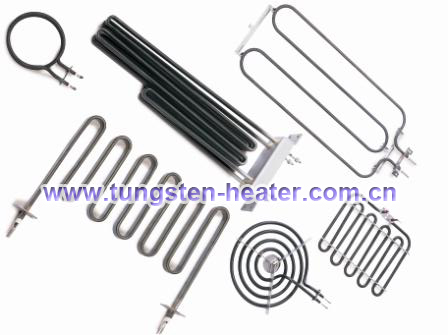


  |
 |
ESTBLISHED1997 ISO9001:2008 CERTIFICATED |
| | Home Page | About Us | Contact Us | Visit Us | 简体中文 | 繁体中文 | 日本語 | English | Deutsch | Français | Português | Español |Visit Our Site in Your Language >> | |||||
|
> Tungsten heater configurations
> Tungsten heater application > Tungsten heater materials > Tungsten heater > Tungsten heater elements Tungsten heater filament Tungsten strip heater Tungsten rod heater Tungsten wire mesh heater Tungsten heater boat > Tungsten Heater Model Tungsten heater Model No.01~03 Tungsten heater Model No.04~06 Tungsten heater Model No.07~09 Tungsten heater Model No.10~12 Tungsten heater Model No.13~15 Tungsten heater Model No.16~18 Tungsten heater Model No.19~21 Tungsten heater Model No.22~24 Tungsten heater Model No.25~28 > Tungsten heater for spurrering > Tungsten heater for vaporization > Vacuum Metallization Vacuum Metallizing Process of Vacuum Metallization > Knowledge of Heating Elements > Quotation Table > E-Catalog of Tungsten Heater |
You're viewing: Home
>>Knowledge of Heating Elements
What is heating element
Heating elements consist of coils of wire, which may be wrapped in insulating materials or protective materials, depending on where they are used. When electricity passes through the wire, it encounters resistance, thus generating heat. The amount of heat generated can be adjusted by varying the amount of current passed through the wire, which may be done with an automatic thermostat or with manual settings operated by the user, as when someone turns the stove on high to boil water, or keeps it on a low heat setting to make a delicate sauce. The principle of heating element Heating elements commonly burn out over time. For this reason, they are often designed in an accessible way so that it is easy to pull out a faulty heat element and replace it with a new one. Since replacements can sometimes be expensive, it is advisable to conduct some tests to confirm that the heating element is the problem; for example, heat may not be generated because no electricity is reaching the element, which may be because a fuse has blown, because there is a problem with the wiring, or for other reasons. in an accessible way so that it is easy to pull out a faulty heat element and replace it with a new one. Since replacements can sometimes be expensive, it is advisable to conduct some tests to confirm that the heating element is the problem; for example, heat may not be generated because no electricity is reaching the element, which may be because a fuse has blown, because there is a problem with the wiring, or for other reasons.
Heating elements are capable of getting quite hot. They are made from metal alloys which are well suited to use as heating elements in part because they can withstand multiple heating and cooling cycles. In environments which get wet, the heating element may be hidden behind a barrier for safety. The barrier will disperse the heat without allowing water to come into direct contact with the element. The principle of water heater Water heating is a thermodynamic process using an energy source to heat water above its initial temperature. Typical domestic uses of hot water are for cooking, cleaning, bathing, and space heating. In industry, both hot water and water heated to steam have many uses. The principle of electric heating Electric heating is any process in which electrical energy is converted to heat. Common applications include heating of buildings, cooking, and industrial processes.An electric heater is an electrical appliance that converts electrical energy into heat. The heating element inside every electric heater is simply an electrical resistor, and works on the principle of Joule heating: an electric current through a resistor converts electrical energy into heat energy. Tungsten heater of Chinatungsten
If you have any interest in our products, please feel free to contact us by email: sales@chinatungsten.com or by telephone:86 592 5129696.
|
|||||||
| Media Center> | [Information Bank] [Dictionary of tungsten] [Products Pictures' Bank] [Live Video of Processing] [Videos of Machining] [Catalogs] |
| Ours Teams> | [Journey to Dongshan] [2004 Xmas] [2005 Xmas] [2006 Spring Festival] [2007 Spring Festival] [Outside] [2008 Spring Festival] [2009 Xmas] |
| Chinatungsten Group> | [Tungsten Alloy Supplier] [CTIA] [CTIA-EN] [CTIA-日本語] [Molybdenum Wire] [Dart Barrels ] [Tungsten Wire] [Tungsten Bars/Rods] [Paper Weight] [Tungsten Alloys] [Copper Tungsten] [Chatroulette] [Darts Shop] [Tungsten Wikipedia] [Tungsten Jewelry] [Fishing Sinkers] |
| [China Tungsten] [Tungsten Carbides] [XATCM ] [Infosys] [Tungsten Wire] [Tungsten Powder][Bucking Bar] [DartChina Club] | |
| [Xiamen Tungsten] [Metals Price] | |
| ||||||||